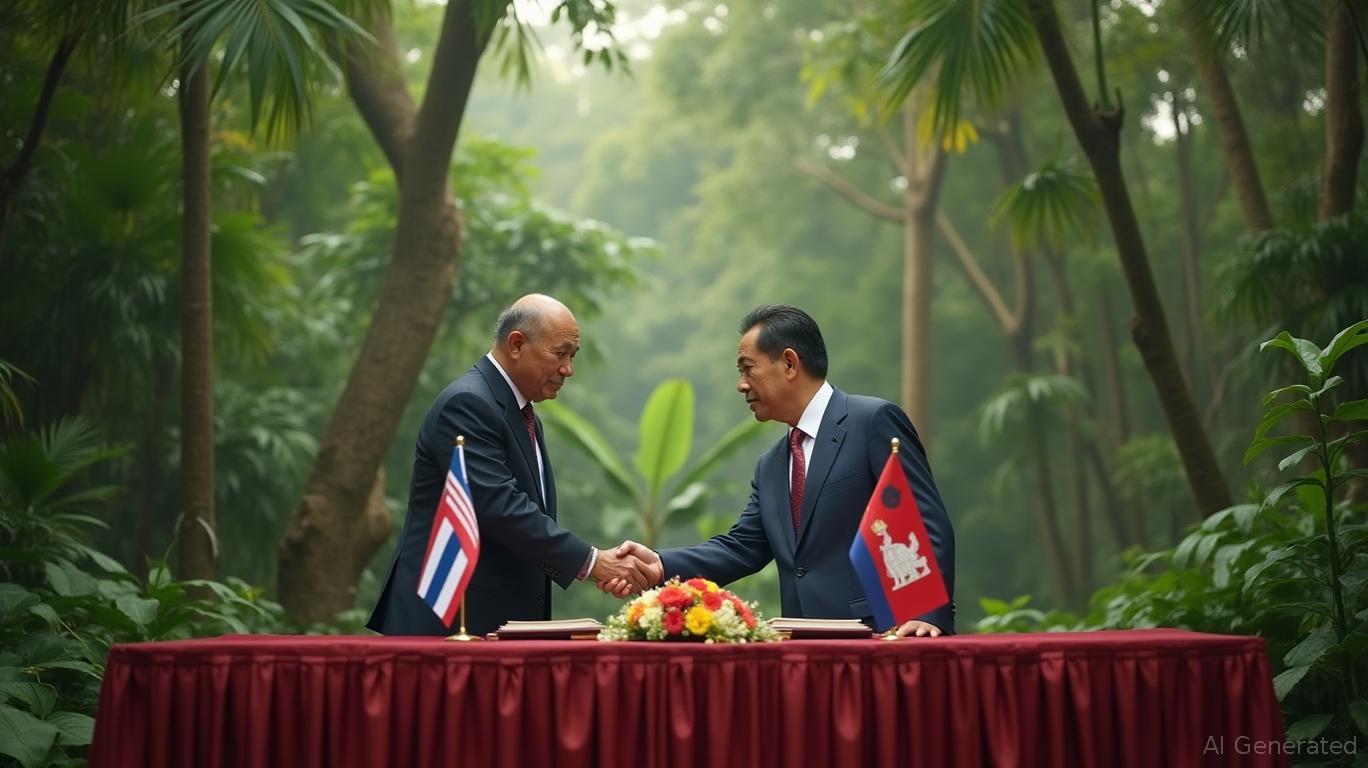Argentine President Javier Milei Has No Crypto Agenda, Experts Say
Despite high expectations from Argentina’s crypto community, President Javier Milei has yet to embrace Bitcoin or blockchain policy. Experts argue his administration’s lack of understanding and strict capital controls are slowing the nation’s crypto growth.
Argentine President Javier Milei has not made crypto or its use cases a fundamental part of his political agenda, primarily because he has little knowledge of the technology, according to leading Bitcoin experts in the country.
During a press roundtable hosted by the Latin American Bitcoin & Blockchain Conference (LABITCONF) on Tuesday, prominent Bitcoiner Carlos Maslatón and Ramiro Marra, who previously served as a member of Milei’s “La Libertad Avanza” party, indicated they do not foresee the current government prioritizing the crypto industry anytime soon.
Bitcoin Expectations Go Unmet
Veteran Bitcoiners in Argentina feel that Milei has failed to meet the expectations of the country’s growing crypto community, BeInCrypto learned during a press conference hosted by LABITCONF in Buenos Aires.
 Ramiro Marra (third from the left) and Carlos Maslatón (fifth from the left) at the LABITCONF press roundtable. Source:
Ramiro Marra (third from the left) and Carlos Maslatón (fifth from the left) at the LABITCONF press roundtable. Source:
When Milei assumed the presidency in 2023, Argentina’s crypto community had high expectations. They heavily anticipated that his government would promote blockchain innovation and move to legalize the use of digital assets in everyday transactions.
They thought that Milei, who firmly believes in the free-market, minimal-government principles of the Austrian School of Economics, would embrace Bitcoin for its decentralized and non-sovereign characteristics.
Cryptocurrencies have been booming in Argentina since 2011, with nearly 20% of the population relying on them as a crucial tool against inflation and government controls. Against this backdrop, Milei’s support for the sector would have been significant.
Since his inauguration, however, Milei has not taken any initiative to advance a crypto agenda as part of his political plan.
According to Carlos Maslatón, a renowned Argentine Bitcoin maximalist, lawyer, and long-time financial analyst, this inaction is partly due to President Milei’s limited understanding of Bitcoin.
Maslatón used to work closely with Milei after he affiliated with the President’s political party, La Libertad Avanza (Freedom Advances), in 2021. However, after internal disagreements with the party’s leadership, Maslaton has since estranged himself.
“I spoke with Milei extensively about Bitcoin in 2013 or 2014, and he attentively listened to what I had to say. But the truth is, I don’t think he was able to grasp its essence totally. I believe he’s a very knowledgeable economist regarding fiat currency, despite his ideological repudiation of it as a liberal,” Maslatón said during the press conference held in Spanish.
Milei has also failed to appoint anyone to his administration who demonstrates an understanding of or interest in digital assets.
The Current Expertise Gap
When Milei became President, Diana Mondino, his pick for Minister of Foreign Affairs, was the only person in his cabinet with some familiarity with crypto. During her time in office, she maintained a favorable outlook on Bitcoin’s decentralized capabilities.
Just days after his inauguration, President Milei signed one of his first decrees into law that broadly deregulated the economy. Mondino swiftly clarified on social media that the new measure allowed any contract between two parties to be executed in Bitcoin or any cryptocurrency.
Y también cualquier otra cripto y/o especie como kilos de novillo o litros de leche.Art 766. – Obligación del deudor. El deudor debe entregar la cantidad correspondiente de la moneda designada, tanto si la moneda tiene curso legal en la República como si no lo tiene.
— Diana Mondino (@DianaMondino) December 21, 2023
However, her efforts were cut short when Milei asked Mondino for her resignation in October 2024. Since then, no other figure from Milei’s cabinet has demonstrated a similar level of expertise.
According to Ramiro Marra, a legislator for the city of Buenos Aires who was once a member of Freedom Advances, the issue extends beyond the executive branch. He said members of Congress who can pass crypto legislation have little or no knowledge of the topic.
“Based on my experience, from speaking with politicians who hold positions in the legislative branch, I can’t find anyone who knows anything about [crypto]. Or rather, almost all of them are inexperienced, and I hope they don’t discuss any kind of law on this topic because they have no idea. That’s why I think talking about regulations is a very serious risk, because you put it in the hands of people who are completely ignorant,” Marra said.
Marra and Maslatón agreed that most efforts to benefit the crypto industry should be limited to the private sector.
Yet, given Argentina’s current capital controls, they stressed that the executive branch must implement certain indispensable measures for the sector to flourish.
Crypto Growth Stalled by Capital Controls
While Milei’s government has eased currency restrictions for regular citizens, there are still controls on international trade and the movement of investment capital.
Maslatón criticized the continued strict capital controls, calling them the main barrier to the free movement of foreign currency. He also denounced the missed chance to leverage blockchain technology as an engine of growth.
He explained that, if he were President, he would have issued a decree declaring Argentina the “number one Bitcoin-friendly country in the world.” Such a measure would focus on ordering banks and neobanks to “facilitate and in no way hinder crypto settlements on the fiat side.”
The move would allow individuals and businesses to freely convert their cryptocurrencies, such as Bitcoin or stablecoins, to Argentine pesos or vice versa through the formal banking system.
“In order to do that, you have to provide freedom of capital inflows and outflows. I don’t know why [Milei] doesn’t want to do that or why he’s so afraid of it,” Maslaton said, adding, “Just with that, [the crypto market] would have exploded; it would have been a bombshell. Not to mention the political consequences favorable to the government that this would have brought. They also have the opportunity to do it now, of course.”
Only time will tell if Milei’s government prioritizes this in the years ahead.
Disclaimer: The content of this article solely reflects the author's opinion and does not represent the platform in any capacity. This article is not intended to serve as a reference for making investment decisions.
You may also like
BlockchainFX's Real-Time Trading Activity Surpasses Competing Crypto Platforms Focused on Speculation
- BlockchainFX ($BFX) is a live crypto trading platform with a $0.029 token price, targeting $0.05 at launch via a hybrid DEX model and 70% fee redistribution to holders. - It attracts investors with 10,000+ daily users, $M+ trading volume, and 4–7% daily USDT returns, contrasting speculative rivals like Coldware and Mutuum Finance. - A $50,000 investment could yield $1.72M if $BFX reaches $1, supported by presale bonuses, Visa cards, and a $500K giveaway to incentivize participation. - With $1.3T in Octob
Ethereum News Today: As ETH Remains Static, MUTM’s DeFi Approach Draws in $17.8M and 17,000 Investors
- Mutuum Finance (MUTM) raised $17.75M in Phase 6 presale at $0.035, attracting 17,370+ holders. - Analysts project $0.21 price target by mid-2026 driven by dual-lending model and Q4 2025 testnet launch. - Project features 24-hour leaderboards, $50K bug bounties, and CertiK audit (90/100) to build trust. - MUTM's structured ROI (420% potential) and utility-driven growth outpace Cardano/ETH's speculative models.

U.S.-Supported Thailand-Cambodia Accord: A Strategic Geopolitical Maneuver for Stability in Southeast Asia
- Thailand and Cambodia near historic peace deal, backed by U.S., to end border clashes with weapon withdrawals and joint de-mining. - U.S. involvement highlights regional influence amid China’s growing presence, with Trump set to witness the October 25 signing. - Thailand unveils $150M tourism stimulus to boost domestic travel, balancing fiscal prudence with growth targets. - China-U.S. trade talks in Malaysia aim to ease tensions over tariffs, with both sides addressing trade barriers and rare-earth expo

BAT rises 1.26% as short-term profits counteract overall declines
- BAT surged 1.26% in 24 hours to $0.1683, contrasting a 27.66% annual decline despite 20.54% monthly gains. - Short-term momentum reflects improved risk appetite and easing crypto bearishness, though long-term fundamentals remain weak. - A proposed EMA crossover strategy aims to validate trends using 50/200-day indicators amid volatile price action. - Backtesting over 12 months with $10k investment seeks to manage risk through -10% stop-loss and +20% take-profit thresholds.
